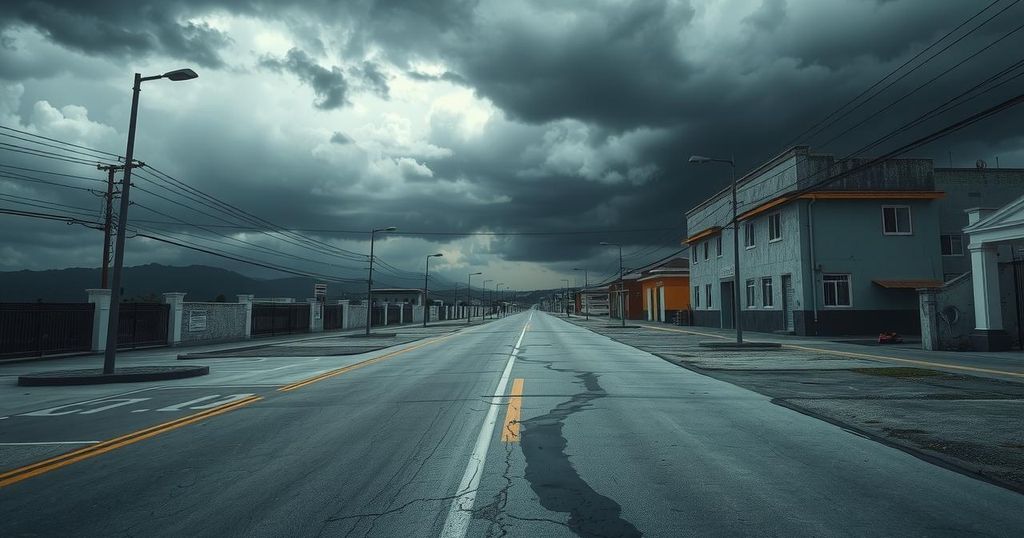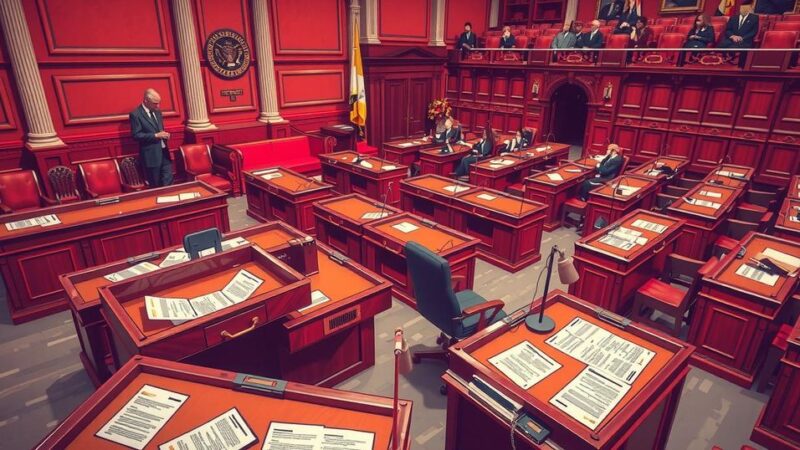Venezuela’s opposition has called for a boycott of the upcoming regional elections, leading to divisions within the party, including disagreements from notable political families. The strategy is controversial; supporters argue it contests an illegitimate regime while critics warn it could diminish future electoral prospects. This internal conflict may significantly impact both Venezuela’s democracy and its future political landscape.
In Venezuela, the opposition is currently facing a significant rift as calls for a boycott of the upcoming regional elections have emerged. This tactic, which is meant to protest against what they perceive as an unfair electoral process, has sparked substantial debate within opposition ranks. Notably, even prominent political families that have long influenced the Venezuelan political landscape are divided over this approach.
The ongoing political situation in Venezuela is rife with corruption allegations, and many in the opposition say participating in the elections would legitimize a government they view as illegitimate. This perspective has led many factions within the opposition to advocate for a complete withdrawal from the electoral process. However, critics argue that boycotting could further alienate voters and weaken their position in the long term.
María Corina Machado, a prominent opposition figure, is among those publicly supporting the boycott, arguing that participating in the elections would endorse President Nicolás Maduro’s regime. Conversely, other factions of the opposition believe that engaging in the electoral process is essential for democracy and could provide an avenue for reforming the political landscape. This internal conflict illustrates not only the complexities of opposition strategies but also the potential ramifications for the future of democracy in Venezuela.
As the boycott debate unfolds, voices from various sectors of society question the efficacy of such a strategy. The division has brought public attention to the internal dynamics of the opposition, highlighting the need for unity against the backdrop of a troubled political environment. The ultimate decision surrounding voter turnout will significantly impact future elections and the legitimacy of the governing bodies they oppose.
In an atmosphere charged with political tensions, the opposition faces pressures not only from within but also from the ruling party, which continues to consolidate power. The outcome of these elections, whether contested or boycotted, will shape the direction Venezuela takes in the coming years. Moreover, as international observers watch closely, the implications of the opposition’s decisions may resonate beyond Venezuela’s borders, affecting regional politics and diplomatic relations over a controversial regime.
The Venezuelan opposition is embroiled in a significant debate over whether to boycott the upcoming regional elections, reflecting deep divisions within the party. While some argue that a boycott is a strategic necessity against a regime they deem illegitimate, others urge for engagement in the electoral process to promote democracy. The implications of this internal conflict could shape not only the future of opposition politics but also influence the country’s overall political landscape. As tensions rise, the decision on voter participation will be crucial for Venezuela’s democratic prospects.
Original Source: www.npr.org






